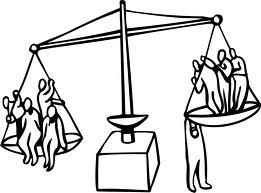co-operation and competition
Social justice is based on universal respect for others. This, and readiness to act and take on responsibility, rather than dependence on external assistance, motivates genuine social justice.
The community framework will encourage people to further their own progress. Educational, cultural and welfare institutions will operate mainly on the basis of funds allocated by each family. This will ensure a fairer distribution of national resources, enhance personal and communal responsibility, and further equal opportunity. Pressing government help for local expenses will require the approval of the Upper House. State assistance will thus reach only those genuinely needing it.
The Citizen's Budget for education and culture will support large families, citizens living in distant regions, and foster creative activities. Welfare allocations will reach the needy directly, or on a temporary basis depending on suitable training. Progressive taxation will encourage employment of the aged and handicapped.
The principles of co-operation and competition in the social and economic domain must be properly balanced. While furthering progress, competition could discourage joint responsibility and cause unbearable economic inequality. The community will address this problem through its own set of values, and support workers' organizations and consumers' associations protecting the interests of isolated workers and consumers. These measures will likewise improve relations between the Jewish majority and Israel's national minorities. National resources will be distributed more fairly, and the non-Jewish population will have a better chance of advancing socially, culturally and economically.

